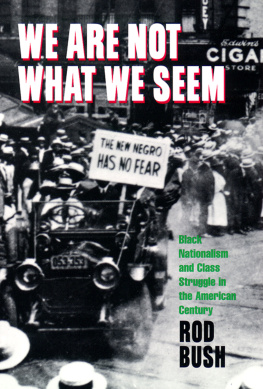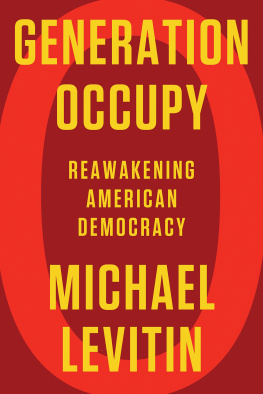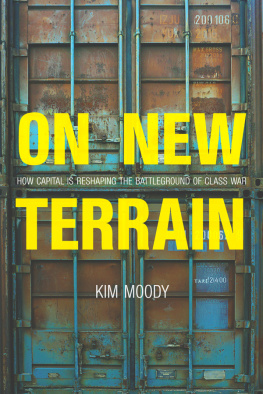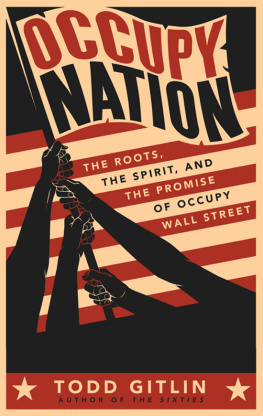BLOOD RED LINES
BLOOD RED LINES
How Nativism Fuels the Right
Brendan OConnor

2021 Brendan OConnor
Published in 2021 by
Haymarket Books
P.O. Box 180165
Chicago, IL 60618
773-583-7884
www.haymarketbooks.org
ISBN: 978-1-64259-381-5
Distributed to the trade in the US through Consortium Book Sales and Distribution (www.cbsd.com) and internationally through Ingram Publisher Services International (www.ingramcontent.com).
This book was published with the generous support of Lannan Foundation and Wallace Action Fund.
Special discounts are available for bulk purchases by organizations and institutions. Please call 773-583-7884 or email for more information.
Cover design by Jamie Kerry.
Library of Congress Cataloging-in-Publication data is available.
For my grandparents, Bob and Rita,
who left home to make a new life
in an unfamiliar place
CONTENTS
PREFACE
One must take history as it comes, whatever course it takes.
Rosa Luxemburg
O n February 28, 2020, as the novel coronavirus known as COVID-19 spread across the world, a group of congressional Republicans sent a letter to officials in the Departments of Defense, Health and Human Services, and Homeland Security articulating their concern that sufficient action was being taken to protect US citizens from the disease, which they worried would spread across the border with Mexico. Given the porous nature of our border, and the continued lack of operational control, they wrote, it is foreseeable, indeed predictable, that any outbreak in Central America or Mexico could cause a rush to our border. This, they warned, would impose a new burden at our southern border that will threaten the safety and health of individuals in the United States and cause a humanitarian crisis of epic proportions along our border and at detention facilities.
In fact, the virus was more likely to spread from the United States to Central America than the reversedue in large part to the ongoing US policy of mass detention and deportation.
Fearing arrest and detention by Immigration and Customs Enforcement (ICE) agents, undocumented immigrants working on the precarious fringes of the US labor market began to withdraw from what few social services were available to them.
At the same time, ICE and Customs and Border Protection (CBP) escalated their surveillance efforts in so-called sanctuary citiesthat is, cities that have made some token effort not to
Years before the coronavirus pandemic hit the United States, Trump, a notorious germaphobe, was using the language of national hygiene to agitate his supporters. In 2015, not long after declaring Mexican immigrants drug dealers and rapists, Trump warned that tremendous infectious disease is pouring across the border thanks to immigration.
I began reporting on the US far right at the beginning of 2016, my attention captured by the militia members who seized control of the Malheur National Wildlife Refuge. Learning about the history that led to that moment, I was fascinated by the celebrity of the Bundy family, the movements simultaneously amateurish and sophisticated use of social media, and, above all, the proliferating political tendencies, shifting alliances and affiliations, and changing orientation toward state power. While antigovernment sentiment had defined the so-called Patriot movement under the Obama administration, far-right activists of various stripes, including the much younger cohort of the alt-right, were recuperated into mainstream politics through Trumps insurgent campaign for president. I found myself repeatedly returning to the question of the relationship between the policy makers (elected and unelected), wealthy donors, and intellectuals of the ruling class and the reactionaries making their presence known both in tweets and in the street. This was, I came to believe, another way of articulating the question of the relationship between capitalism and white supremacy.
When I started down this path, I was writing for Gawker, a New York media gossip website that had transformed itself into one of the internets most high-profile antagonists of the twentyfirst-century power elite. For better or for worse, Gawker would pick a fight with anyone. This, among other things, had made it a target for the very kinds of people I was interested in: billionaires and fascists. Harassment and death threats were part of the job at Gawker Media, which included similarly acerbic websites like Jezebel, Deadspin, and Gizmodo. (Jezebels overwhelmingly female staff still endure terrifying misogyny.) As the 2016 primary proceeded, however, the virulence escalated, driven in part by reactionary glee at Gawkers impending demise: a lawsuit brought by the professional wrestler Terry Bollea, a.k.a. Hulk Hoganand secretly funded by Trump-supporting Silicon Valley billionaire Peter Thielbankrupted the company. Not long after Trump received the Republican Partys nomination, Gawker ceased publication.
Shortly thereafter, the hosts of an influential alt-right podcast invited me on their show to talk about Gawker shutting down. Unable to ignore my sense of morbid curiosity, I accepted. I did think there might be some journalistic value in it, too. At the time, many of us who were writing about the alt-right still were not sure quite what to make of it. I certainly wasnt. Perhaps that was naive. By the end of the conversation, however, it became clear to me that these people were fascists: not just edgy internet trolls trying to get a rise out of people, but deeply, terrifyingly sincere political actors trying to make their way toward a world where anyone who did not fit into their vision of strength, beauty, or worth was eliminated. Nothing would make them happier, I realized, than to see me and my friends dead. They could not be treated as interesting if reprehensible characters. This was something different, if not quite new.
In the years since that day, I have tried to understand the forces driving this country as it lurches from crisis to crisis. I investigated the dark money flowing from the wealthiest US families through academia, DC policy shops, and election campaigns, shaping politics and ideas. I covered fascist rallies from Portland, Oregon, to Washington, DC, watching police beat people who had gathered to defend their communities. In the Rio Grande Valley, I played with children while their mothers, organizers on the front line of the struggle against the deportation machine, trained in direct action tactics; later, I learned that we had been under surveillance by the US military.communists and anarchists, leftists and liberals, revolutionaries and reformersabout what is to be done.
Despite my best efforts, much remains opaque to me. This, at least, is clear: immigration today is useful to capitalism not only as a source of cheap labor but as a source of division within the working classa problem best left unresolved. It is not hypocrisy for Donald Trump to both provoke anti-immigrant sentiment while also staffing undocumented immigrants in his business, it is good strategy, human rights scholar Suzy Lee argues. It not only serves to silence his immigrant workers, many of whom are too afraid of detention and deportation to demand better wages or working conditions, it serves to undermine the labor movement as a whole, channeling native workers frustration and anxiety away from class exploitation and inequality.
But immigration is not only a source of division and profit. Migration itself, the editors of the leftist journal
Next page









